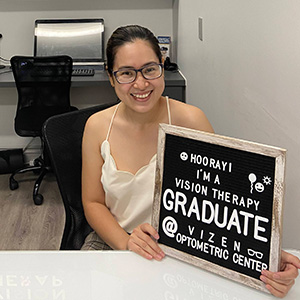
You might find it surprising to know that many kids and adults quietly suffer from debilitating vision problems. These conditions often elude the best efforts of specialists in routine eye exams, simply because suffering patients can read the 20/20 line...

Studies indicate that children with vision impairment are twice as likely to be diagnosed with ADHD. Seems a little high, doesn’t it? This occurs because underlying vision problems often mimic ADHD symptoms, when in fact, vision therapy treatment is what is needed to solve the issue...








